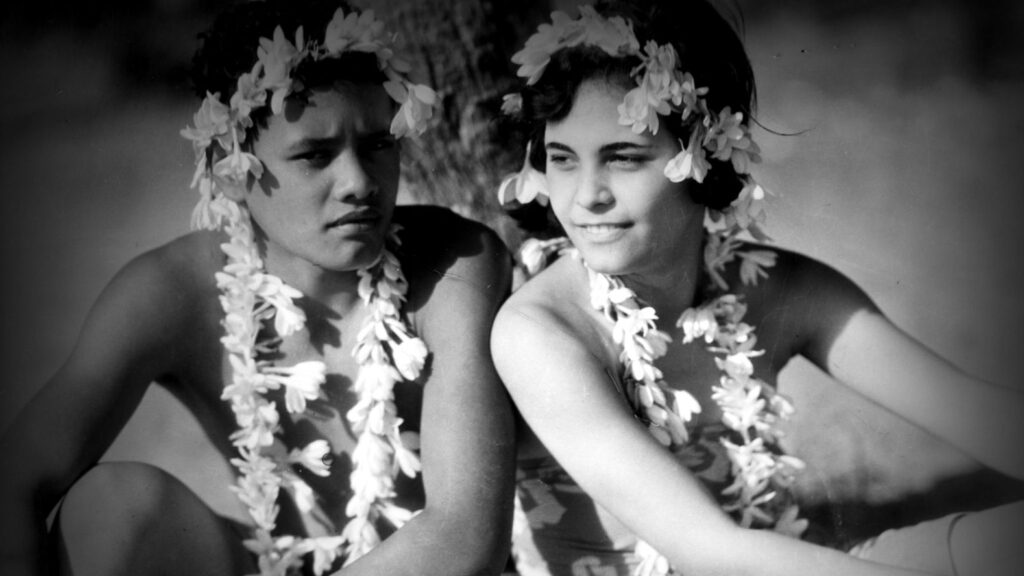Wednesday, January 10 @ 7:30 PM / NEIU — The Auditorium at NEIU — 3701 W Bryn Mawr Ave
Tickets: $10 at the door

TABU: A STORY OF THE SOUTH SEAS
Directed by F.W. Murnau • 1931
F.W. Murnau had been imported from Germany to bring an artistic air to Fox Film Corporation with Sunrise, but soon soured on the Hollywood dream factory. Robert Flaherty had never been a studio man, though his pioneering documentaries Nanook of the North and Moana played to broad and receptive audiences and demonstrated a largely untapped hunger for new approaches to storytelling. Perhaps together Murnau and Flaherty could inaugurate a new style of filmmaking and beat Hollywood at its own game. The pair sailed to Tahiti with a promise of funding from a fly-by-night film company, which never materialized. Working with a cast of non-professionals, Murnau and Flaherty pointed to an unspecified Polynesian legend as their putative source material. What they brought back from eight months in Bora Bora was something mythic but cagey, ethereal but rough: not a documentary, but a universal (and hence, very Hollywood) story of a Girl (Reri) and a Boy (Matahi) whose Paradise becomes Paradise Lost. Was it drama, anthropology, or some unholy comingling of the two? Alas, by the time the film was finished, Murnau and Flaherty had gone their separate ways, leaving cinematographer Floyd Crosby (who won an Academy Award for his efforts) as the film’s spokesman. Murnau died a week before the film’s premiere, and Tabu finally became the legend he had been after all along: a staggering vision of innocence and loss, a stark symphony guided by an otherworldly conductor. (KW)
81 min • Murnau-Flaherty Productions • 35mm from the Chicago Film Society collection at the
University of Chicago Film Studies Center, permission Kino
Preceded by: “Finding His Voice” (Fleischer Studios, 1929) — 11 min — 35mm
NEXT UP: AELITA, QUEEN OF MARS on Tuesday, January 16 at Music Box
